#23 Reflection On 6 Months Of Writing On Substack
In 3 more months, it will officially by my kid...
Six months ago to this day, I started this Substack.
In this post, I’ll tell you why I started writing, give a couple of lessons I learned about being consistent with writing, and how to be consistent in general. Let’s a-go.
I hadn’t used Substack before, but was familiar with it being subscribed to my friend Dennis’s Substack. I also had seen other email newsletters that weren’t on Substack, such as Chris Williamson’s and Ali Abdaal’s. These were more centered around productivity and discipline providing these creators leads to other parts of their wider businesses.
I thought I could try it out, and center it around a topic like personal development or technology. Maybe if I stuck around with it for a while-a couple of years-I could possibly build an audience and generate some extra spending money from it.
At the very least, I would become better at writing-an important skill.
Six months into this journey, I have gone down a different path. I’ve found that writing about whatever topic I want to each week is way more enjoyable than focusing on a particular niche.
This gets me coming back each week to write, making it enjoyable. Whether it’s a question I thought of while sitting on the toilet or an experience that I want to chronicle, I try not to box myself in and write about anything under the sun.
If you were to describe my Substack in one sentence, I would want it to be that it makes you think a little. Not in a snobby way-just that it present ideas, thoughts, and topics that you may have not considered before.
I know for sure there is a lot of things that I don’t know.
Now if you were to ask me if this is fun? I would say, “Hmmm, maybe.”
I think the better word to use is fulfilling. It’s just fulfilling to have an idea in your head and turn it into reality. I don’t know if I’ve ever done anything like that before, especially on a weekly basis.
I wasn’t really that drawn to writing either as I didn’t particularly care for it or English class growing up, but I’ve learned that when I can write about anything, I enjoy it a lot. I’m not constrained by someone else’s objective.
Something that I’ve find extremely cool is that I only have to write this once, and it’s almost like I have a conversation with around 30 people at once.
This must be why society advanced exponentially quickly after the printing press was invented. We were able to transmit knowledge to a wider range of people as anybody who took the time to write down and organize their thought processes could then mass produce them. This allowed others to absorb knowledge without requiring the manual labor of the original author teaching it to them.
Now, let me quickly tell you the process I use to write one of these posts.
I start with an idea-a jumble of thoughts on some topic-and write it down all in one take so I can get those thoughts onto paper. Then I go back to reorganize it, clean it up, and shuffle things around for clarity. Maybe add some pictures if I want to.
The majority of this process is in the refining part where I proof read once, then a second, and then one last time for OCD’s sake. I hypothesize one of the skills you develop as you become a better writer is the ability to write almost everything organized on your first draft, so you don’t have to edit as much down the road.
But that’s basically it.
Now that I’ve told you why I started and how I do this, let’s talk about the lessons I’ve learned from six months of writing on Substack.
Just focus on the writing and staying consistent.
At the start, the hardest thing to do is just to start, and that applies to nearly everything. In the beginning, you just need to focus on pulling all your effort to start and then staying to write. I remember that it took me a while to get around to starting this Substack but I’m glad I did.
Make it as easy as possible to start writing. My advice is if you want other people to see and read it, start it on Substack. I may be a little biased here, but Substack takes care of everything so you can just focus on writing.
You can literally just make an account, and then you’re able to send emails, have a professional website to showcase your posts, and share your writing with a larger community—Substack’s community. You may want to start publishing some other way, such as on your own website, but that takes too long. All that matters in the beginning is the act of writing so that you start to get into the flow.
The other part of this is staying consistent. It’s hard to stick with anything especially as life takes over but what has worked for me is setting a target for when to publish and a schedule of when to write.
I write two to three days a week and deliver it on Fridays. Your schedule doesn’t have to match this though. It could be once every other week, monthly, or even every blue moon. However, I would say once a week has made me get develop my skills better as a writer and I enjoy it more because it is so often.
Bottem Line: Set your own schedule and then stick with it
If you are worried about time commitment, I have some good news. You decide are long these posts are. They could be just one paragraph, one sentence, even one word if you wanted to.
You just need to stick with how often you are going to write and know that some weeks you will have more time to write, and some weeks, less. Remember, you determine the length.
Get a couple of friends to read it.
I found that if I got my friends to sign up, it was very motivating to keep coming back to write as I knew someone was viewing my posts.
I asked anyone I was close with or felt a connection when I met them, giving them a little description of my Substack You are probably are familiar with this because about 95% of my subscribers are people I know.
I did this slowly, just asking someone every once in awhile, and I was able to see a growth in the numbers, that even though small, still motivated to me come back.
Also, if you were wondering, I haven’t had someone decline my offer to subscribe, but have had people ignore and never get back to me-something that’s bound to happen. Can’t be afraid of rejection.
Log down your ideas.
Something you might wonder is, What will you write about each week? I had that question in the beginning as well. I found though that after a while, at least for me, you just get ideas. The longer you stay with writing consistently, the more you think, “Huh, I could explore this topic or I could explore that.”
There’s not many bounds here.
What also helps is that when you get an idea, write it down somewhere before you lose it. Then you always have something to start with when you go to write.
Honestly, it’s just good advice in general. If you have an idea that applies to your life, write it down.
“You have 5 minutes to act on an idea before it’s gone.”
-Kevin Kelly
It takes longer than you think to write.
I’d say on average, it takes about 2-3 hours to write a 5-7 minute post. This definitely depends on several things like how well you wrote the first draft, and how much you want to refine it, but I found that if you want to make it easy to read and flow well, you’ll spend the majority of the time refining it.
I check, double-check, and sometimes even triple-check my post. After the first draft, it takes a while to review and put things in order, and the buildup of time doing this definitely surprised me when I first started.
I know you might say, 'Wow, that’s a lot of time; I could never do that,' but (1) if you enjoy it, the time goes by quickly, and (2) if you care and know other people are going to read it, you’ll likely spend a lot of time making sure it reads smoothly.
If this scares you, remember you can you combat this by writing shorter posts. Still counts.
On more personal note, I learned a lot more about Substack.
I’ve rarely used the platform during the first couple of months I was writing on it, but after exploring it slowly over time, I learned more how it’s structured.
It seems to almost be another form of social media where they have the homepage where you can scroll and view “Notes” that are short 1 - 2 sentence posts, similar to tweets from ‘X’. Some people post things just to get likes and more engagement, but others post what articles they’ve written on their Substack or restack someone’s article that they enjoyed reading.
Everybody’s Substack gets a website as well and I didn’t even know you can customize it but apparently you can.
This is what mine looks like right now and here’s the link if you want to check it out.
Don’t get hung up on the numbers.
At some point, with any kind of application where you can track growth or stats of how well it is doing, you will get a teeny, weeny bit obsessed over the numbers. I’m in that phase right now.
I can see the number of views I get per day and the open rate for each email. (I can’t see who opened it, just how many subscribers did) I didn’t use to check that much, but the last two weeks, I’ve been checking it a few times a day as I think it gives me a dopamine boost.
My advice is don’t get hung up on the numbers because I believe it’s an empty pursuit. Again, just focus on the writing and being consistent. Inevitably as you progress, people will notice and the views/growth will translate.
Part of this leads me into my next and final lesson.
At the end, if you are trying to play the numbers game, it’s going to take some time.
At the end of the day, if you’re just focused on attaining vanity metrics such as more subscribers, more views, etc.-it’s going to take longer than you think.
I’m talking about years.
Below, you can a see a screenshot of how many videos it took for popular YouTuber Ali Abdaal to make before he reached about a million subscribers. It took around 288-308 videos.
I believe he uploaded twice a week, so 288/2 = 144 weeks = ~3 years. That’s actually not too bad, in my opinion. Maybe you are startled by these numbers. YEARS? Well, how long does it take to get a bachelor’s degree?
Shit doesn’t happen overnight man.
I’m just saying that growth and people engaging with your content will occur, but it’s going to take a while, and it’s going to be slow. You should pursue other things in your life while being consistent with the writing in the background.
That’s all I can tell you for now, but I think I’ll have more to say about it in the future.
Well, at the end of this, I hope that you enjoyed some of the things I’ve learned over the last six months and have gotten a peek at the behind-the-scenes of how I do this.
If you’ve read this far, I just want to say thank you for taking the time out of your day to read these emails. It means a lot to me.
If you’d like, leave a comment if you enjoyed this email, have any thoughts about past posts, recommendations for the future, or just want to say hi.
I’d love to hear it.
See you next week,
-Justin



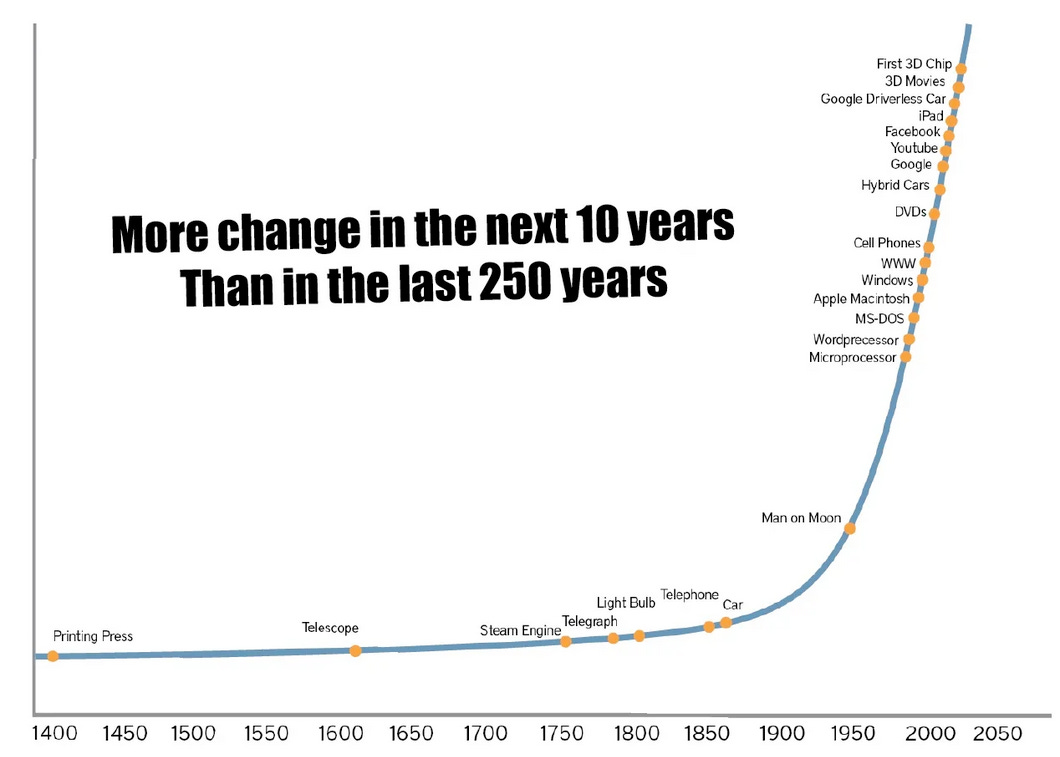
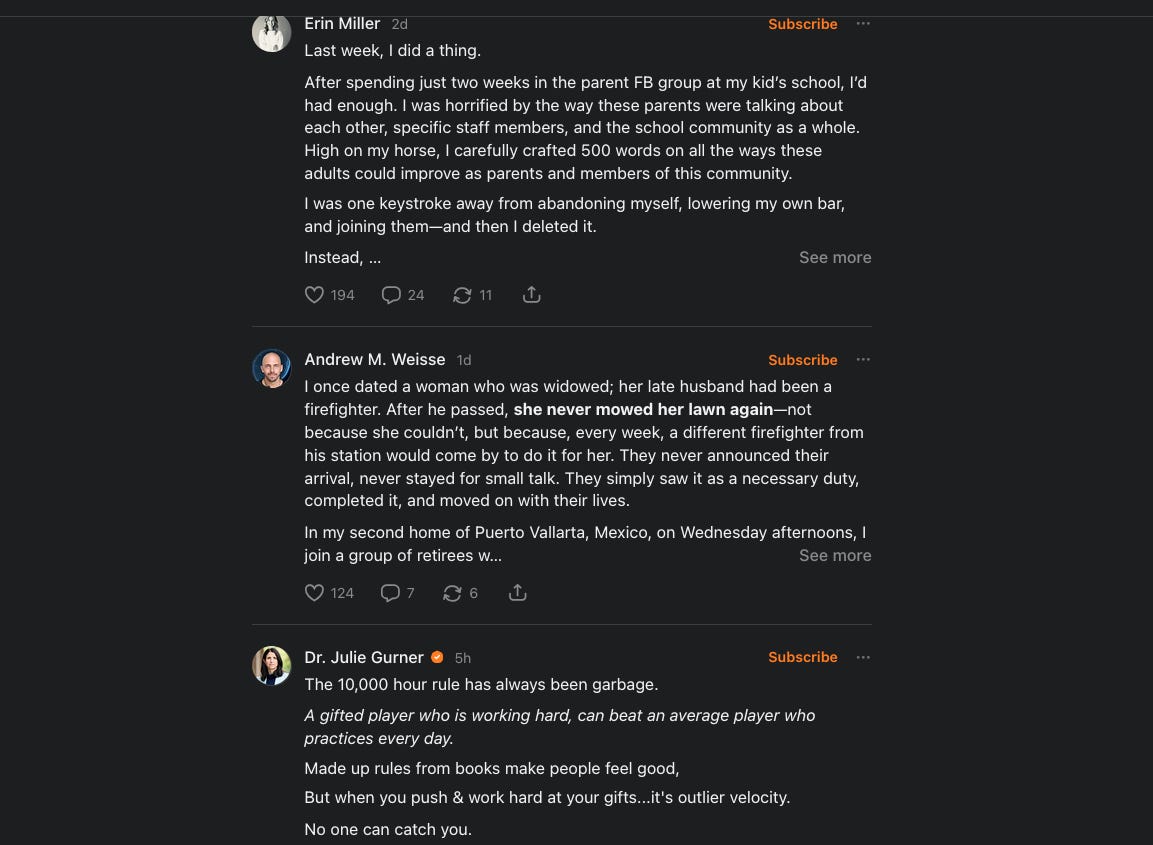
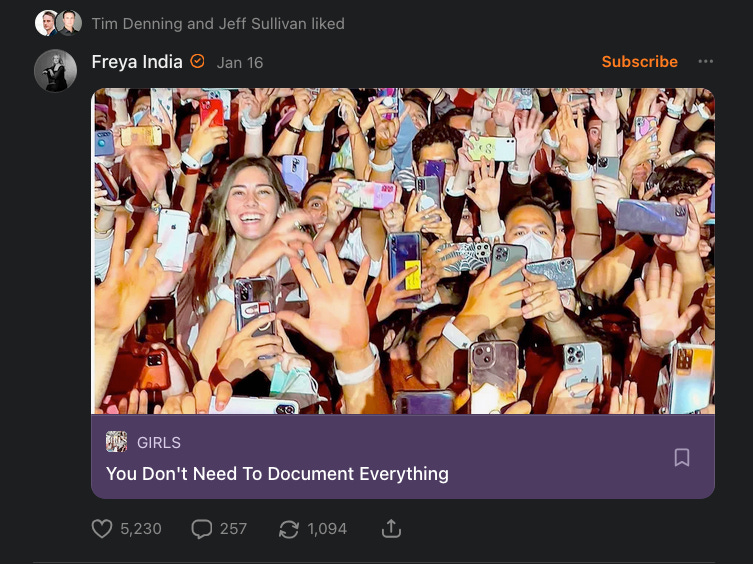
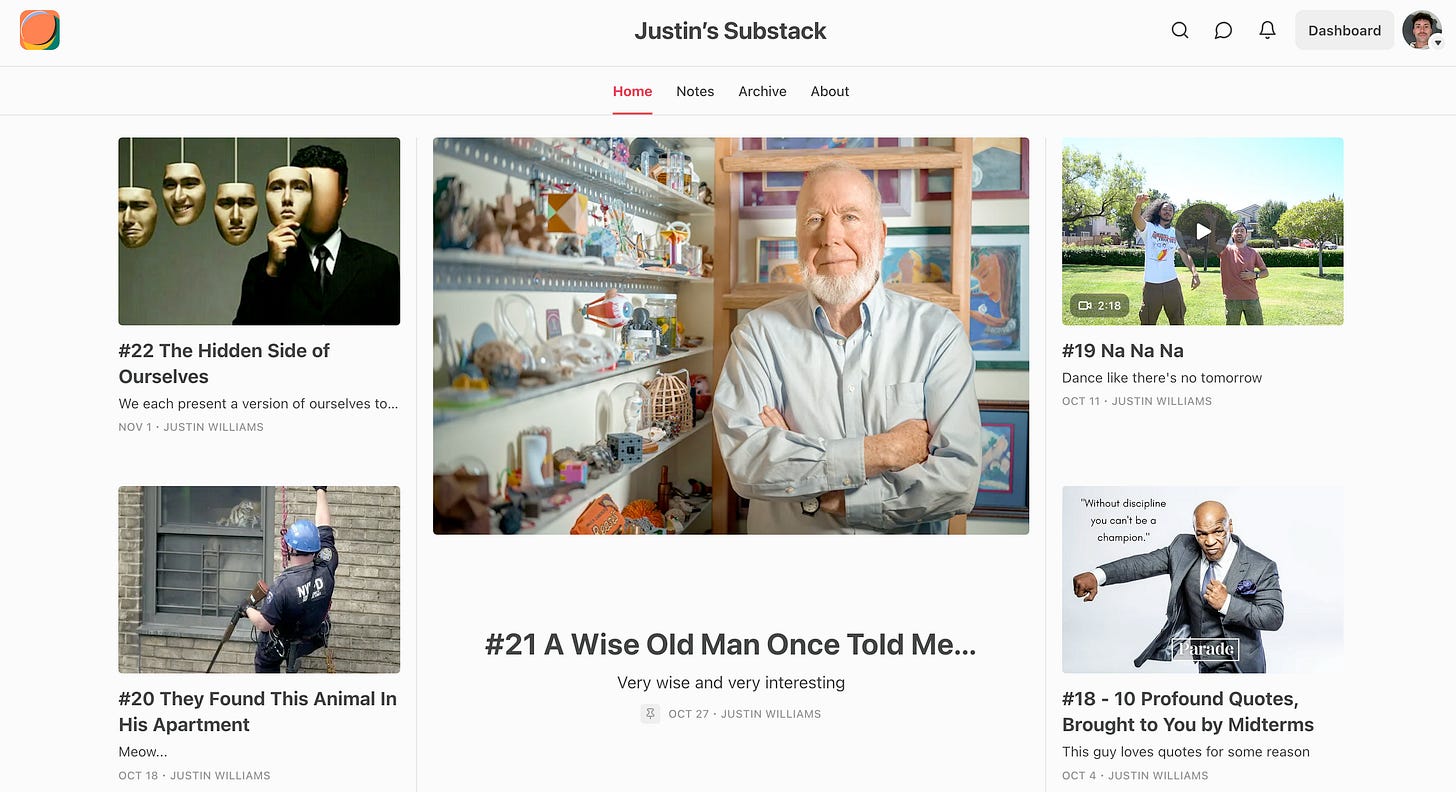
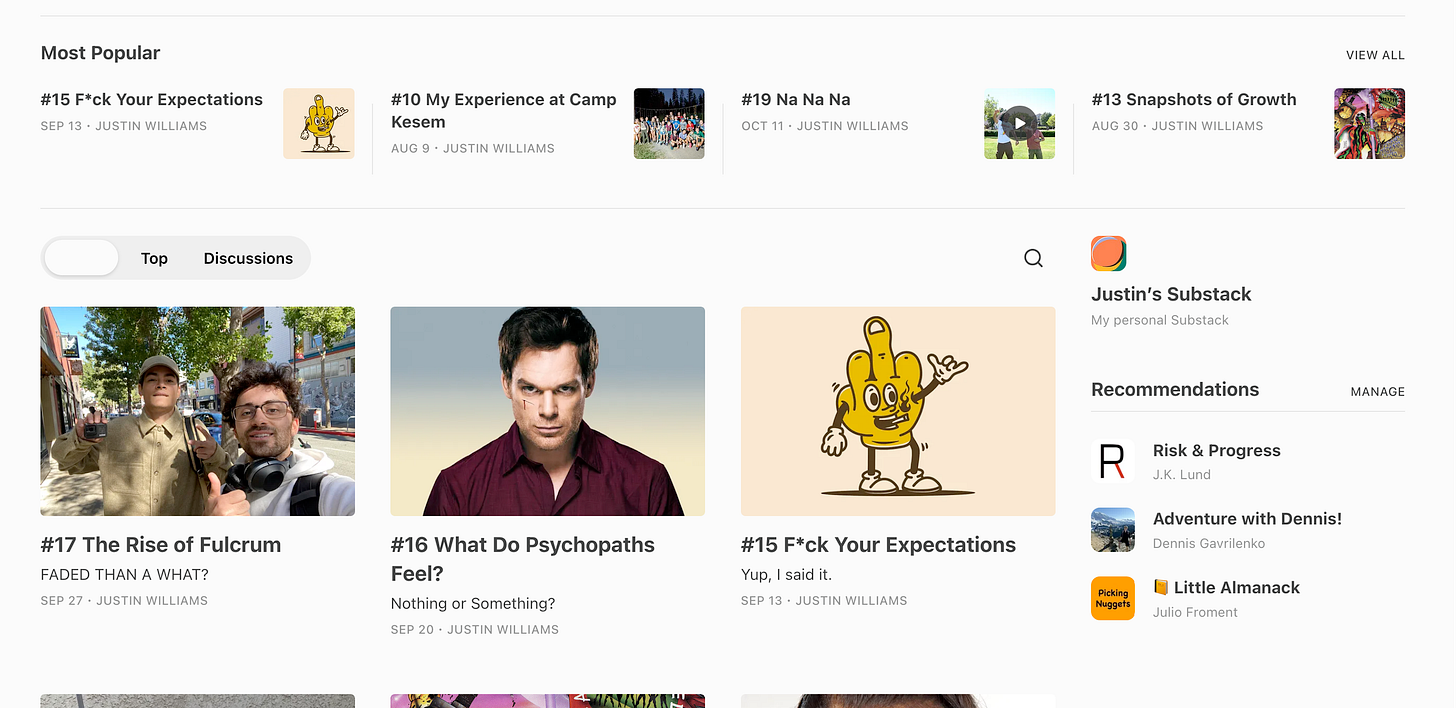
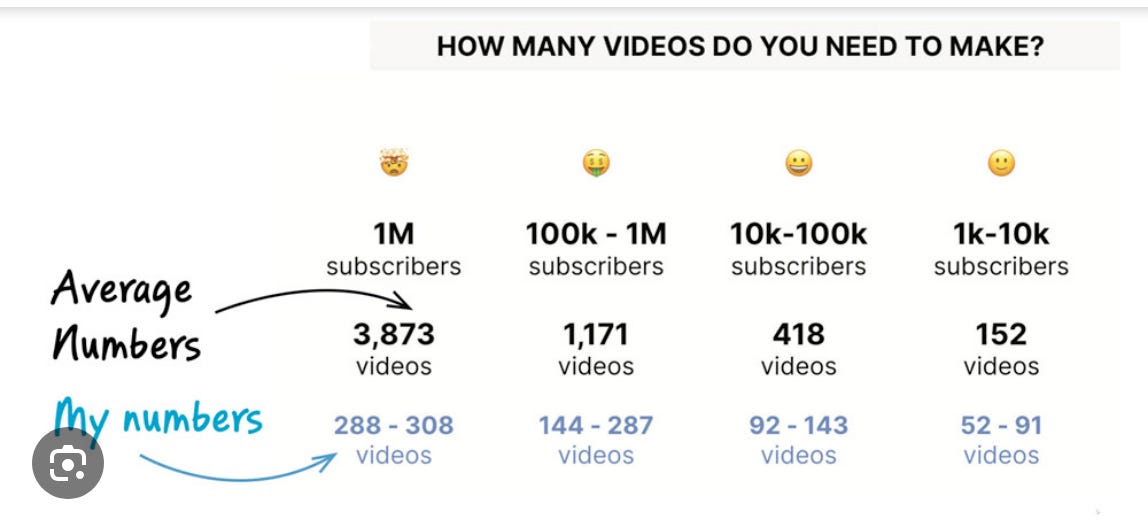
Justin, I absolutely LOVED this reflection! There are so many things you mentioned that are so true - writing being fulfilling (if not necessarily fun), writing taking MUCH longer than reading, and the benefits of writing down your ideas and thoughts as soon as you get them. It's been such a pleasure seeing your writing improve and your Substack grow, and I can't wait to see where it continues to go in the future!
(P.S. thanks for the shoutout)